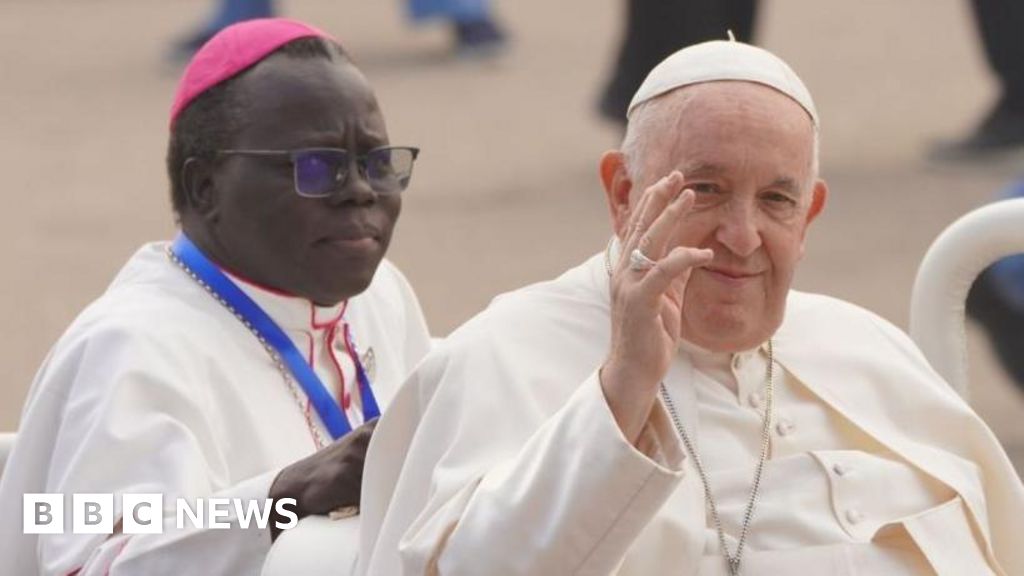Pope Francis and the power of humility

Pope Francis was buried in Rome on Saturday in a simple wooden casket. It was his wish to eschew the much more ornate coffins used for previous popes that consist of three nested boxes made of cypress, lead and oak, as it also was to be laid to rest in a basilica outside the Vatican’s walls. In the days before his funeral, when he lay in state in St. Peter’s Basilica, his coffin was positioned close to the floor instead of being raised on a bier that would have suggested that he was above the hundreds of thousands of faithful who paid their respects after his death last Monday. It was a typical of a Pope who had refused the palatial Vatican digs that come with the job and lived instead in a modest guest house, and who throughout his papacy criticized well-to-do clerics who put themselves above their flock. More important still, his final wishes reflected his greatest achievement, which was to bring humility to a church better known for its cold-hearted use of judgment to assert itself. To progressive non-Catholics and atheists, Pope Francis’s downsized funeral and his focus on humility no doubt seem rather trite. The pope is, after all, one of the most powerful men on the planet and the head of the oldest institution in the Western world. It is also one of the most conservative institutions in the world. Roman Catholic teachings make it a sin to have sex outside of marriage between a man and a woman. Abortion and contraception are prohibited. Women cannot become priests; nor can married people. Homosexuality is considered “intrinsically disordered” and “contrary to natural law,” beliefs that cause real harm to LGBTQ people. Those rules were in place when Jorge Mario Bergoglio, an Argentinian Jesuit cardinal, was elected pope in 2013, and they were still in place when he died. Any hopes that the first pope in almost 1,300 years to be selected from outside Europe, and who dedicated his papacy to the marginalized, would modernize the church have been dashed. But that should not be remembered as the sum total of Pope Francis’s legacy. The power of his humility has redefined what it means to be Catholic, and it ought to be seen as an example for all who want to be leaders in this world. Many examples come to mind. Pope Francis continuously urged people to pray for him. It was his way of saying two important things: that he was a person like any other, in need of intercession; and that he believed that any person of any faith had as direct a line to God as he or any member of the clergy did. Then there was his response when he was asked about gay priests and whether they belonged in the church: “If they accept the Lord and have goodwill, who am I to judge them? They shouldn’t be marginalized." While that did not undo the church’s catechism on homosexuality, it was an extraordinary disavowal of blind judgment. After he was criticized in 2018 for failing to acknowledge the seriousness of a sexual abuse scandal in Chile involving the church, he ordered an investigation, discovered he was wrong and apologized to the victims. Pope Francis had the humility to admit his error and change course. And there was the time he gave a delegation of Indigenous people 30 minutes to make their case for an apology from the church for the role it played in Canada’s residential school system. The meeting in Rome ended up lasting three hours, and it led to Pope Francis travelling to Maskwacis, Alta., in 2022 to deliver an apology. Every leader of every institution leaves behind a mixed legacy. That legacy is shaped by the inherent limitations of the institution’s guiding principles, and by the limitations of the leader themself. In a time of ugly populism in which self-dealing billionaires and leaders of autocratic bent marginalize the poorest among us, Pope Francis advocated to his final days for the downtrodden, criticized governments that criminalize outsiders, lent an ear to those whose voices are rarely heard and disavowed the trappings of power. An incredibly powerful man’s most powerful weapon was humility. Pope Francis believed his role was to serve his flock, not to lord over it. If his example inspires the next pope, or anyone who wants to lead in any capacity, political or otherwise, the world will be a better place.


















